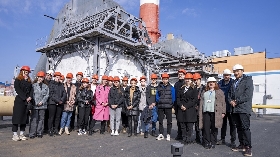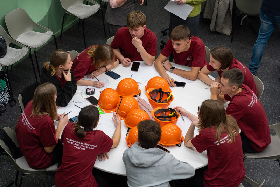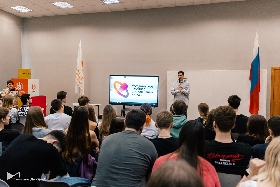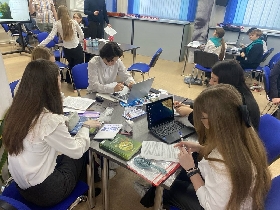Civil Engineering | Construction of Unique Buildings and Structures

Majors of the Civil Engineering program.Bachelor’s programs: Industrial and Civil Engineering; Heat and Gas Supply and Ventilation; Water Supply and Disposal; Hydraulic Engineering, Geotechnical Engineering and Power Plant Construction; Manufacture and Use of Building Materials, Products and Structures; Highways; Investment and Construction Activities Management. Master’s programs: Water Supply and Disposal; Hydraulic Engineering; Industrial and Civil Engineering: Design; Industrial and Civil Engineering: Construction Technologies and Management; Investment and Construction Activities Management; Heat and Gas Supply and Ventilation; Manufacture and Use of Building Materials, Products and Structures; Energy Saving and Energy Efficiency Improvement in Buildings; Control and Supervisory Activities in Construction. Specializations of the Construction of Unique Buildings and Structures program: Construction of High-Rise and Long-Span Buildings and Structures; Construction of Hydraulic Structures of Increased Responsibility
Accreditation. State accreditation. Professional-public accreditation (the Council for Professional Competence of the Rosatom State Corporation).
Awards and achievements. Every year, students of all majors and specializations become leaders at all-Russian graduation thesis contests, championships and Olympiads. NNGASU is one of Russia’s leaders in building information modeling (BIM) education.
Learning outcomes. The universal degrees in Civil Engineering and Construction of Unique Buildings and Structures ensure graduates’ professional and career development in any economic conditions. At the height of their career, graduates have the opportunity to hold leadership positions at firms, companies, and corporations as well as senior positions at federal public authorities specializing in design, construction and supervision.
Research. Scientists conduct basic and applied R&D in 39 research areas and take part in all-Russian and international conferences. Students work on real-life practical tasks as part of their R&D.
Competitive advantages. Practice-oriented educational programs at different levels, highly qualified teaching staff, practical training facilities at the top organizations in the industry, popular educational programs, state-of-the-art facilities and resources, the well-developed continuing professional education system as a factor of career advancement.
Career prospects and employment. Graduates work at Atomenergoproekt, Teploenergo, the Municipal Enterprise Institute of City Development NizhegorodgrazhdanNIIproekt, Department of Urban Development of the Territory of the Nizhny Novgorod Region, the Department of Urban Development and Architecture of the Nizhny Novgorod Administration, Gazprom transgaz Nizhny Novgorod, T Plus, and other organizations.

Elena Belous
Do you have any questions?




